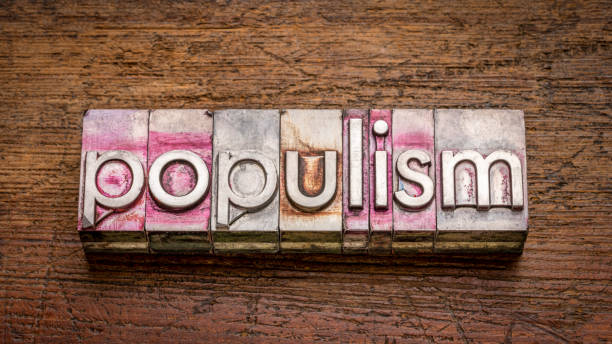POPULISM — the making of wild promises appealing to the economically and socially marginalised — is gaining momentum globally and in South Africa. The fuel driving this trend is inequality.
After 30 years of democracy, South Africa remains one of the most unequal societies on Earth. Many political actors across the spectrum have resorted to popularist tactics in reaction to their inability to deliver real change, seeking to incite voters without genuinely addressing the root cause of societal issues. Populism offers, much like snake oil merchants, quick solutions to complex problems, but leads to disappointment and damage to both those seduced by these promises and those fearful of them.
There is an urgent need to re-evaluate the transformational path that South Africa embarked upon in 1994. This path, driven by state-led socioeconomic rights, shepherded by the courts, aimed at balancing the constitutional rights of the privileged and disadvantaged. Yet, the transformative dream has stalled; the rule of law is increasingly undermined and its institutions weakened by corruption, cadre deployment and patronage politics.
Even successful legal battles are meaningless unless citizens are mobilised to press home progressive social change. Public interest legal organisations understand this reality well. The wider South African justice system, including public interest law organisations, state bodies such as Legal Aid South Africa and Chapter 9 institutions, and the judiciary are facing the limitations of the post-1994 model in which legal intervention alone would drive social justice.
Lawyers for Human Rights’ work in protecting people, challenging unlawful state and public action and advocating for land and environmental justice highlights the limit of court victories without unified community engagement. People facing external and existential threats struggle to unite, because they are burdened by vast inequalities and an emphasis on individual success over social solidarity and inclusive development. For community mobilisation to be transformative it must challenge powerful societal forces and foster unity.
This is not an impossible task. The Treatment Action Campaign (TAC) offers a powerful example of how social mobilisation together with legal action can drive progressive change. The TAC’s fight for access to HIV/Aids treatment used a combination of protest, education and litigation, building a grassroots movement that forced a government policy shift. This brought life-saving changes to millions, especially the most vulnerable.
Public interest legal organisations’ partnerships with community organisations in campaigns against gender-based violence, challenging unlawful detentions, protecting casual workers’ rights to fair treatment in outsourcing practices and defending marginalised communities from corporate land grabs also illustrates the importance of combining legal advocacy with grassroot mobilisation.
Expanding these models across a range of societal problems, at scale, in an increasingly hostile environment is the task that must now be shouldered.
We must recognise that however functional the state is, it cannot solve every problem. A robust, self-organising, civil society — rooted in local communities both wealthy and impoverished — is essential. These communities must wield political pressure, leverage the law and drive progressive self-help initiatives that promote their own development.
We need to recognise the limits of top-down transformation and build from the ground up. Access to justice organisations can play a catalytic and supportive role in community mobilisation. But this hard work often gets overshadowed by the demands and glamour of highprofile litigation. The challenge now is to balance the pursuit of legal victories with grassroot engagement, ensuring the law serves as a tool for mobilisation rather than a substitute for it. The coalition government is not a cure-all for the growing instability of our society. Instead, it presents an opportunity to collaborate with communities, build alliances and strengthen grassroots power to pursue development with all democratic tools available. – M&G
By Wayne Ncube & David Dickinson
